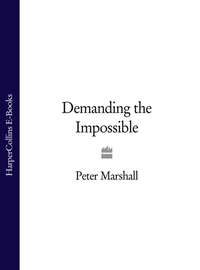Sadece Litres'te okuyun
Kitap dosya olarak indirilemez ancak uygulamamız üzerinden veya online olarak web sitemizden okunabilir.
Kitabı oku: «Demanding the Impossible», sayfa 4
Bir şeyler ters gitti, lütfen daha sonra tekrar deneyin
₺751,75
Türler ve etiketler
Yaş sınırı:
0+Litres'teki yayın tarihi:
27 aralık 2018Hacim:
1381 s. 3 illüstrasyonISBN:
9780007375837Telif hakkı:
HarperCollins